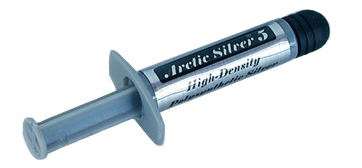SniperHunter
Banned

Given the option, would you want to think faster and have sharper attention? Research suggests that electrical brain stimulation kits could have just those effects. But now some companies are selling such devices online, leading to calls to regulate the technology.
It may sound too good to be true but scientists say the technology is promising.
Transcranial direct current stimulation (TDCS), which passes small electrical currents directly on to the scalp, stimulates the nerve cells in the brain (neurons).
It's non-invasive, extremely mild and the US military even uses TDCS in an attempt to improve the performance of its drone pilots.
You need to know how long to stimulate, at what time to stimulate and what intensity to use
Dr Roy Cohen Kadosh
University of Oxford
The idea is that it makes the neurons more likely to fire and preliminary research suggests electrical simulation can improve attention as well as have a positive impact on people with cognitive impairments and depression.
It has also been shown to increase performance in a maths task, an improvement which was still in place six months later.
The scientist behind this work is Dr Roy Cohen Kadosh from the University of Oxford. He uses TDCS to look at how cognitive functions improve.
He says: "Research has shown that by delivering electricity to the right part of the brain, we can change the threshold of neurons that transmit information in our brain, and by doing that we can improve cognitive abilities in different types of psychological functions."
Studies like his are perhaps why commercial companies are jumping on the technology and largely promoting it as a way to help gamers get ahead.
"A headset for gamers, take charge... Overclock your brain," is how one company promotes it. Another states: "Can you learn 20-40% quicker, reduce pain, feel better, increase energy or reduce stress with tDCS? Research studies say, YES!"
'Unintended results'
But if these devices are used in the wrong way, scientists say they could be harmful.
"If they make claims about gaming, that is very far removed from the sort of treatment claims that might be to do with helping stroke patients or people suffering from depression," warns Hannah Maslen from the Oxford Martin School at Oxford University.
The electrodes of one device seen by the Oxford Martin School (below) are positioned so they stimulate the area of the brain under the forehead.

This is where the pre-frontal cortex is situated, involved in high-level cognition such as attention.
But in Dr Cohen Kadosh's lab, electrical stimulation is used in a controlled environment for no more than 20 minutes at a time and only on participants who have passed strict medical checks.
Scientists are, after all, applying electrodes to the brain - which they say could have some unintended results.
For example, different brain regions than those intended might be affected and, in some instances, stimulation could impair rather than improve function if the polarity of the stimulation is reversed.
Dr Cohen Kadosh says: "You can use stimulation that might not be beneficial for you, you need to know how long to stimulate, at what time to stimulate and what intensity to use."
Recently, another team of researchers have pleaded for "calm and caution" for these devices when it comes to the developing brain because of the known risks. These can include seizures and mood changes.
Author of this work, Nick Davis from Swansea University, explains that because the brain continues to develop until the age of 20, stimulation in this age group would have a stronger impact.
And more worryingly for him, people are also increasingly making brain stimulation kits themselves. This easily "puts the technology in the realms of clever teenagers," adds Dr Davis.
An active forum on reddit is devoted to the technology, and people there have complained of "burning to the scalp". Another user wrote that they "seemed to be getting angry frequently" after using TDCS.
"These are the people who are probably going to do it at a higher dosage than a scientist or clinician would give to a patient and are less aware of the potential risks," says Dr Davis.
Exploiting hype
These sorts of issues are why a team from the Oxford Martin school at Oxford University is now calling calling for regulation of the commercially sold devices.
Lead author of this paper, Dr Maslen, explains that as they are marketed to gamers and do not make any treatment claims, they avoid the need for regulation.
"If you were to make a treatment claim, that the device would alleviate symptoms or treat a recognised disease or illness, the device would automatically fall under the medical devices directive and the legislation associated with that."
Her team does not want to restrict access to cognitive enhancement devices but wants consumers to have "the information they need to assess what risks they are willing to take in pursuit of which potential benefits".
Another concern is that the science behind these devices is not ready for the commercial market, something Steven Novella a neurologist at Yale University has raised. He says that companies are jumping on the hype of research that is not quite ready for the world because it "sounds very advanced and sexy".
"There's lots of published evidence that could make it seem as if these are proven therapies but I think the marketing is a couple of steps ahead of the science.
"Any device with medical claims that it's meant to affect our biological function should be appropriately regulated. Regulation is the only thing that creates the motivation to spend the money and take the time to do the proper research," he adds.
Suggestions of increased attention and the alleviation of certain medical conditions means interest in electrical stimulation is bound to increase but if the research continues to show promising results it's clear that TDCS will need to be treated with some caution.
http://www.bbc.com/news/health-27343047
Video at link
brb gonna electrocute my prefrontal cortex





